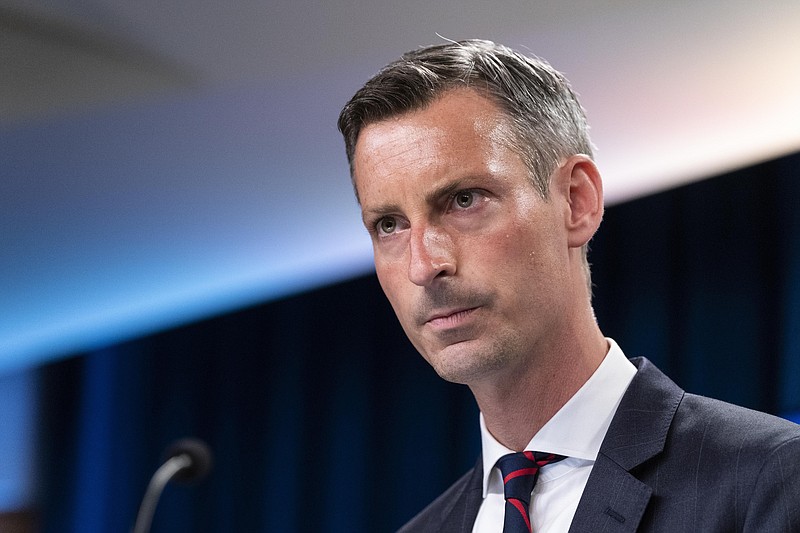WASHINGTON (AP) - The Biden administration has reached a preliminary agreement with Germany over a controversial Russia-to-Europe gas pipeline that is vehemently opposed by Ukraine and Poland as well as both Republicans and Democrats in Congress.
Congressional aides briefed on the outlines of the deal said it would allow the completion of the Nord Stream 2 pipeline without either Germany or Russia facing new U.S. sanctions. In return, the U.S. and Germany will make certain concessions to Ukraine and Poland, although it was not immediately clear if those would be welcomed.
Administration officials declined to comment on specifics of the matter pending an announcement that could come as early as Wednesday. The State Department said Monday that a senior diplomat would be visiting both Poland and Ukraine this week in part to discuss Nord Stream 2 in what are expected to be contentious talks.
The Nord Stream 2 project has posed a major foreign policy dilemma for the Biden administration. U.S. officials from both parties have long feared that it would give Russia too much power over European gas supplies, potentially shutting off gas to Russian adversaries Ukraine and Poland. But the pipeline is almost completed and the U.S. has been determined to rebuild ties with Germany that were damaged during the Trump administration.
President Joe Biden's approach to Ukraine is also a sensitive political subject. Former President Donald Trump's attempt to pressure Ukraine's president to dig up dirt on Biden and his son led to Trump's first impeachment. He was later acquitted by the Senate.
State Department spokesman Ned Price would not confirm on Tuesday that a deal had been done, but said "the Germans have put forward useful proposals and we have been able to make progress on steps to achieve that shared goal, again that shared goal being to ensure that Russia cannot weaponize energy flows."
Word of the impending agreement comes as Ukraine is eager to have the White House make good on an invitation to President Volodymyr Zelenskyy to visit Washington. The invitation was extended in principle for "later this summer" before Biden met with Russian President Vladimir Putin in Geneva last month.
Although Zelenskyy said at the time he expected to meet Biden in July, no date has been announced as the month draws to a close and Ukraine's public reaction to the Nord Stream agreement may be muted as a result.
Nord Stream 2 has been a topic of intense debate between U.S. and German officials for some time and it was a major agenda item during Biden's meeting with German Chancellor Angela Merkel last week. Merkel supports the pipeline and Biden has suggested punishing Germany for that support would be counterproductive to broader U.S. interests.

